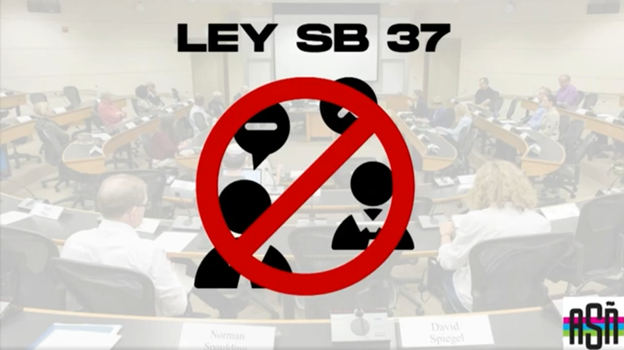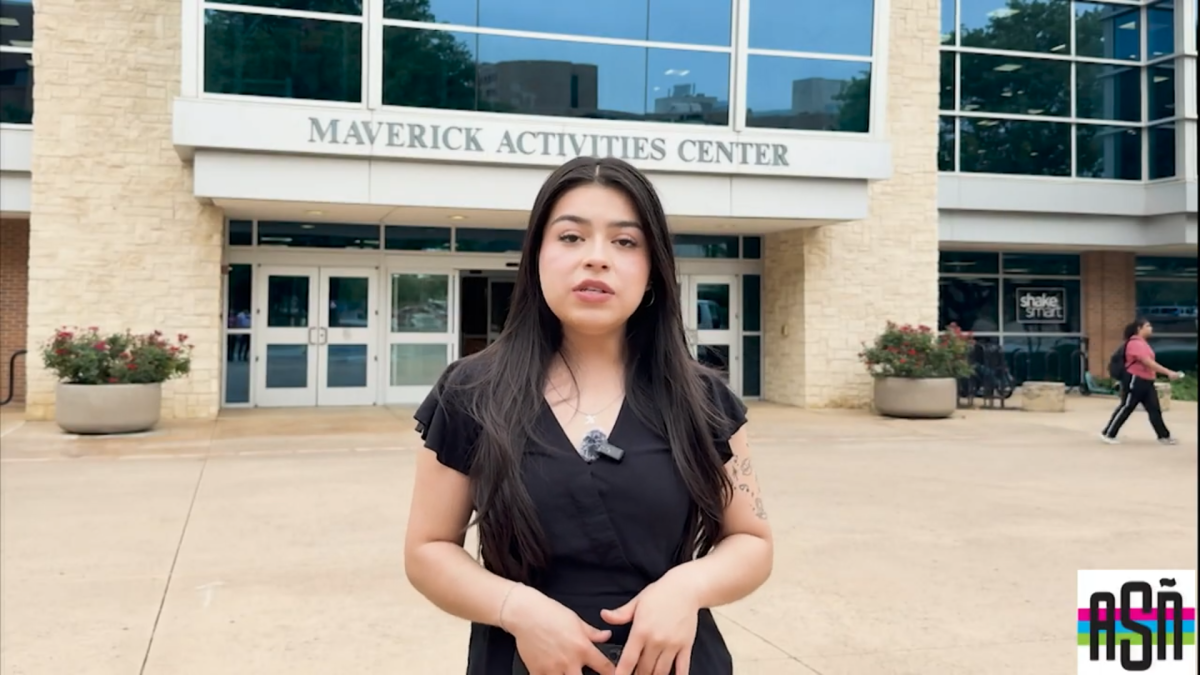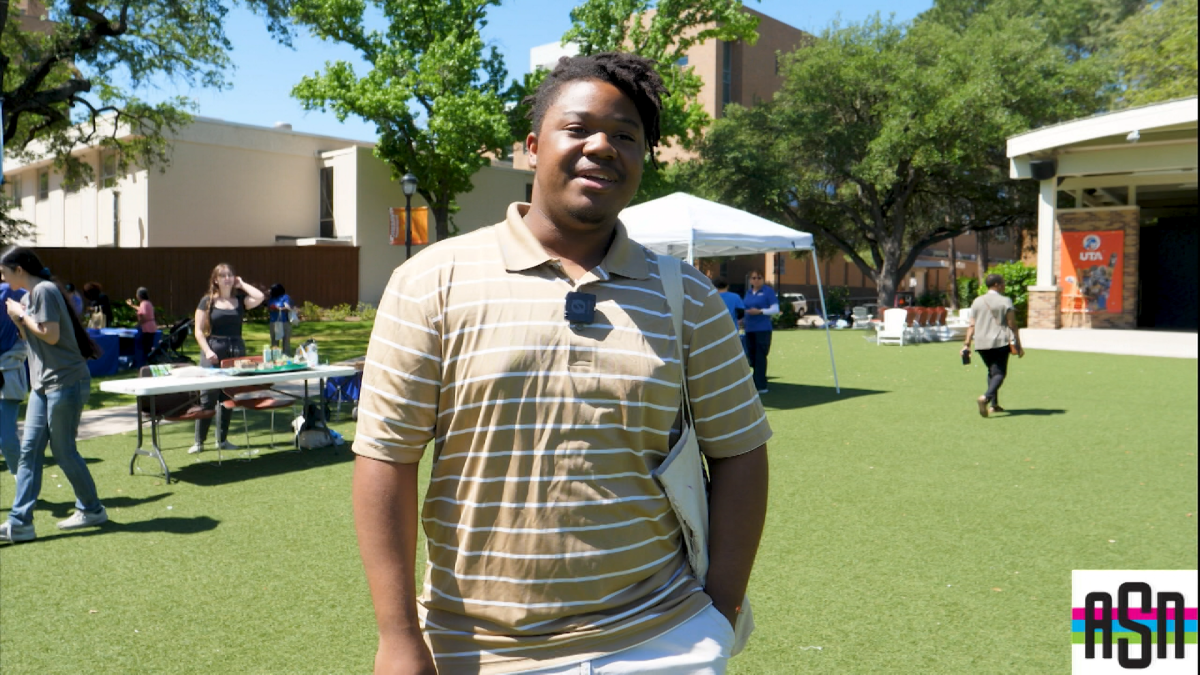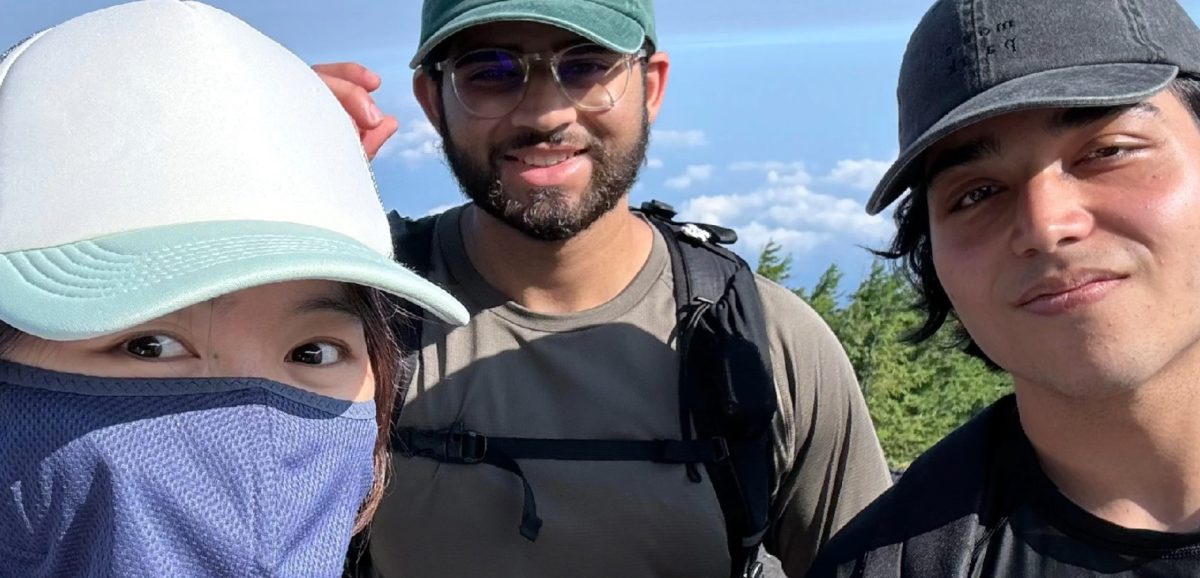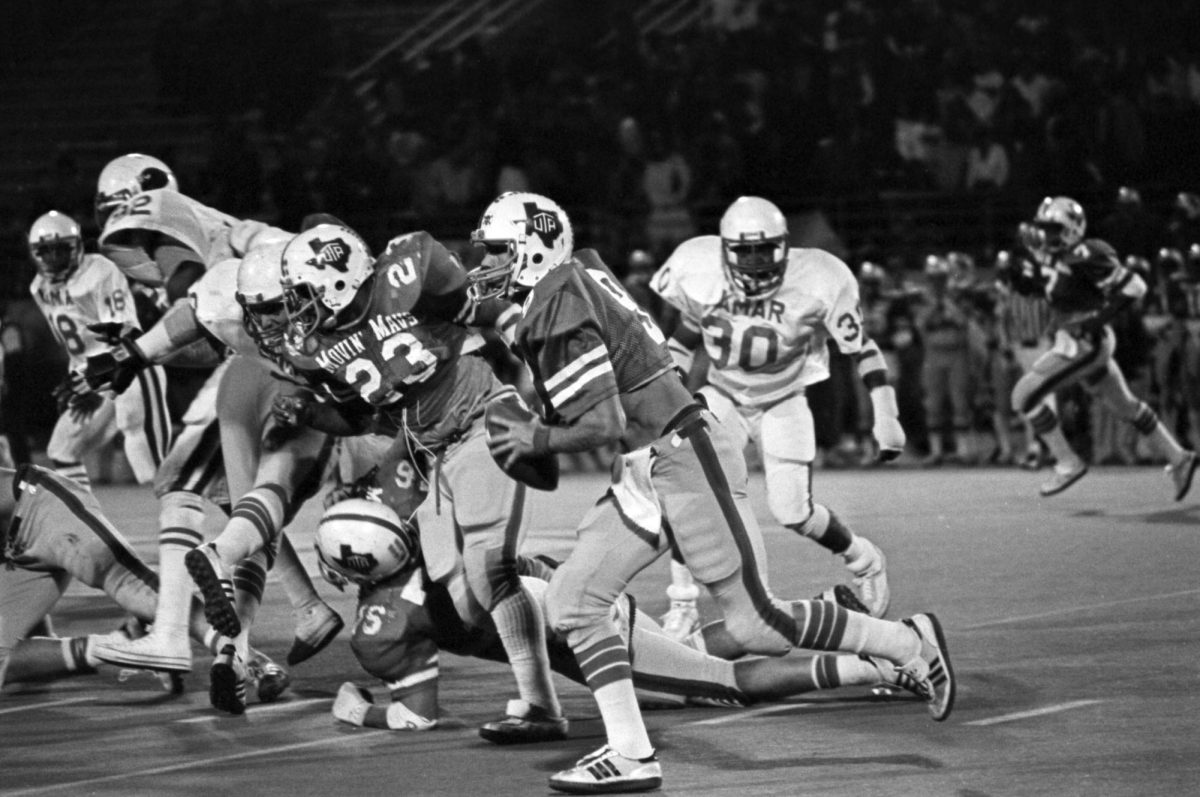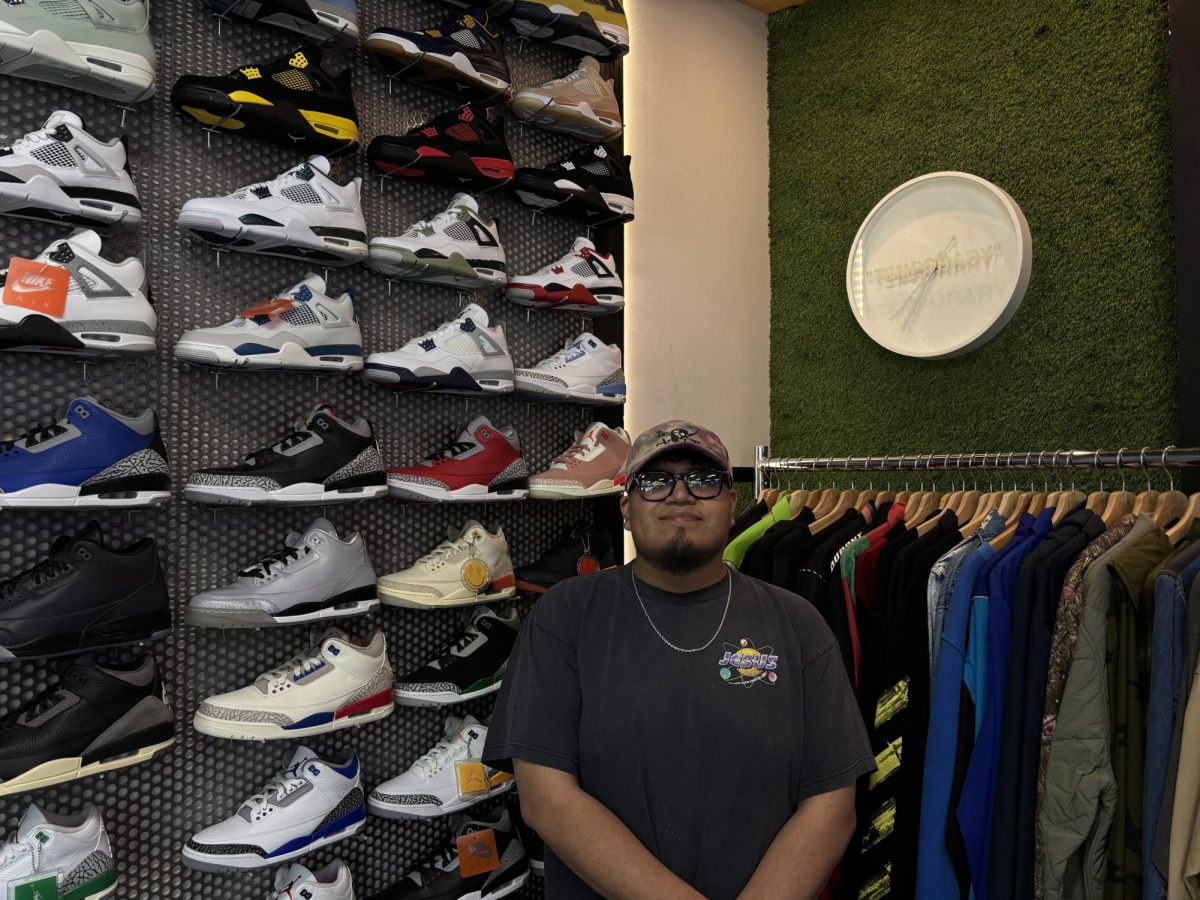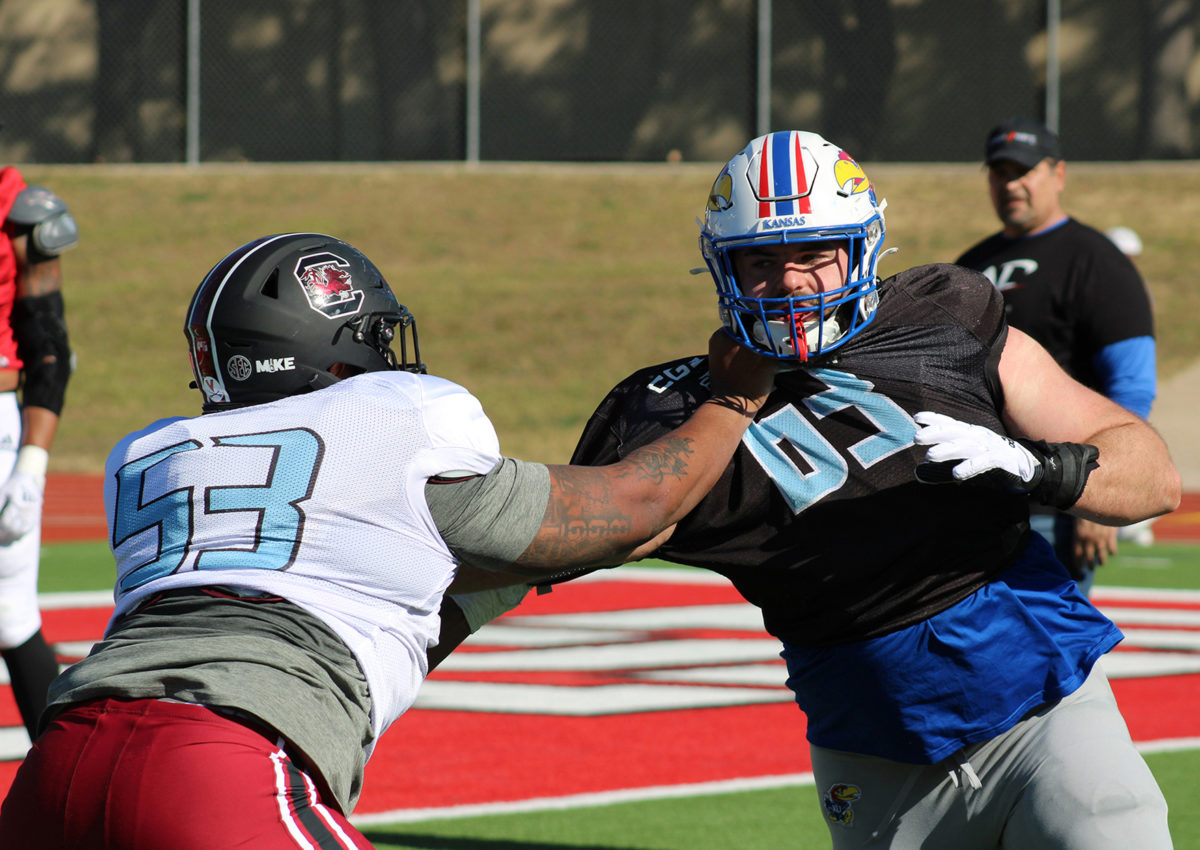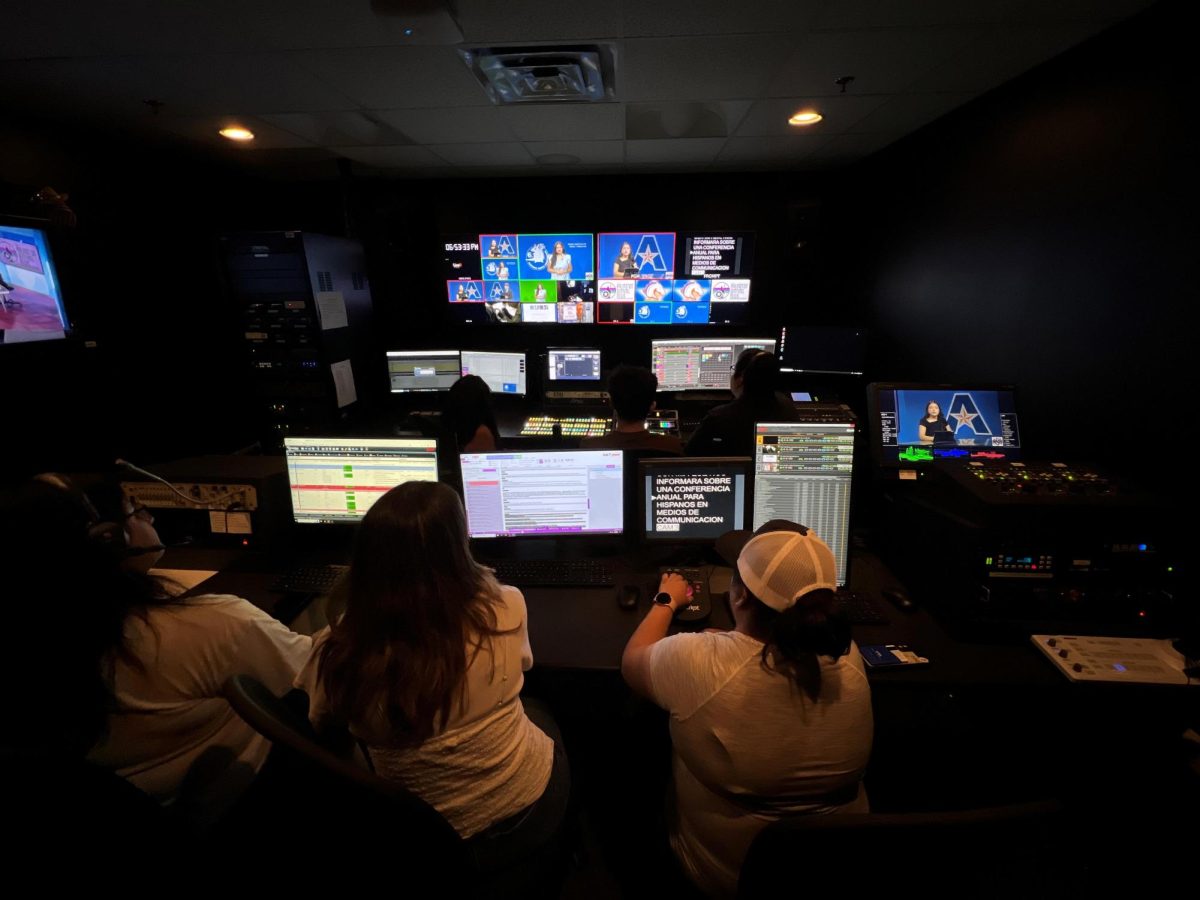ARLINGTON, Texas– Caroline Sullivan, a first-year swimmer at Southern Methodist University, was caught off guard to find a TikTok video she posted gained over 22 million views and 4 million likes overnight in February 2021. In 2023, with more than 2,000 Instagram followers and more than 264,000 followers on TikTok, Sullivan, like other athletes, faces the pressure of performing on the field, court or pool under an online spotlight.
In the NCAA Student-Athlete Well-Being Survey from fall 2021, 38% of female college athlete respondents reported feeling mentally exhausted, and 47% felt overwhelmed by all they had to do.
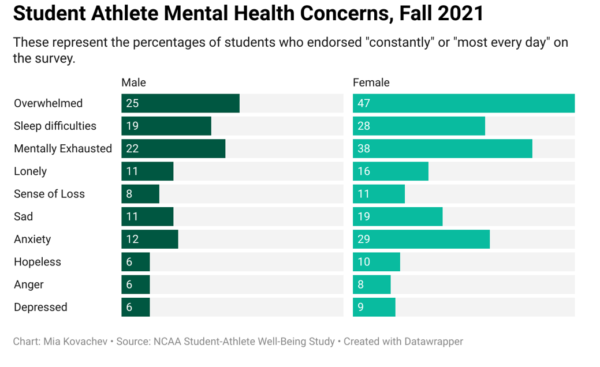
Sullivan said that one of the factors that affects her mental health the most as a student athlete is the stress of how she performs in school and in her sport. She also said that mental health plays an important role in her swimming performance.
“If you have something going on like with your friends or with your family that is affecting your mental health, you will not swim well,” Sullivan said. “It’s just how it is.”
In addition, the research team at Boston Children’s Hospital and the Micheli Center for Sports Injury Prevention found that 20% of a student-athlete’s day is spent on social media.
Sullivan said that her TikTok account started as a page dedicated to swimming and has evolved from a niche audience to more of a general sports audience. She said that originally, she wanted to keep her account a secret. At some point, some of her teammates found out about it, which affected her.
“There were a few mean girls who would talk about it, and they just were so mean about it,” Sullivan said. “I just never understood why they cared, like I knew that they were just being judgmental, and I just had to let it roll off, but I just never understood that.”
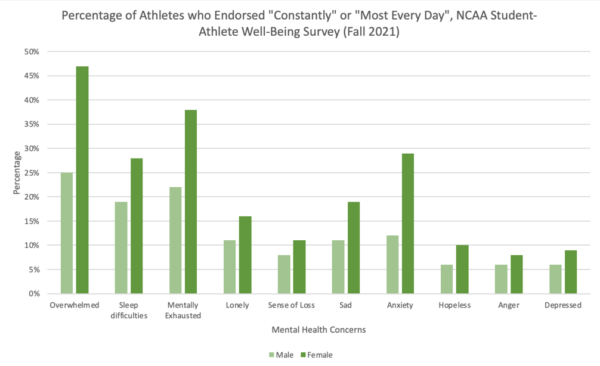
Alexandra Watson, a first-year swimmer at Johns Hopkins University, said that social media has had a negative impact on her as a student athlete, and she often needs to take a break. She said she is active on Instagram, with around 700 followers, and TikTok, with around 100 followers.
“On TikTok, I see a lot of athletes on my For You Page, and I do definitely compare myself to other people,” Watson said. “There have been times, mostly on TikTok, where I see someone who seems to be living an amazing life, and you compare yourself to them and start feeling bad.”
The NCAA Student-Athlete Well-Being Survey also reported that 22% of male athletes felt mentally exhausted and 25% felt overwhelmed by all they had to do. This was at least six percentage points higher than the other categories.
Tracy Carrington is a certified mental performance consultant with doctorate and master’s degrees in kinesiology. Carrington said that one of the factors that affects an athlete’s mental health the most is the ability to handle stress and manage expectations. She said that the expectations can be attached to an athlete’s own goals, or from other people, like teammates, coaches or loved ones. They can also come from fans.
“Athletes have always kind of had to manage the critics,” Carrington said. “What social media changes is the access they have to these athletes, and so that adds a pretty heavy layer to expectations.”
Carrington said that a large part of her job is helping athletes manage these expectations. She said part of balancing expectations for athletes is knowing they can not control what the fans think about them. Social media adds another layer to their mental health that they have to manage.
“One coach said to me, ‘With all due respect to a banker, but 80,000 people don’t show up on a Saturday and criticize every action that he makes,’” she said. “Some of these kids, they’re 18, 19 or 20 years olds, and it’s a lot of pressure for them.”
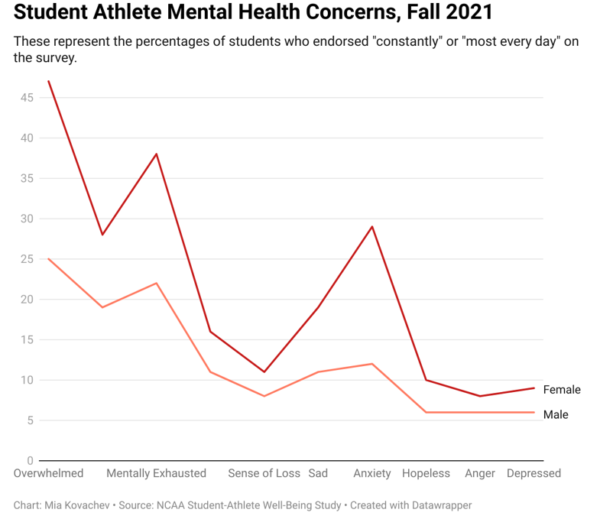
David Roditi, the head coach of the men’s tennis team at Texas Christian University, said that a big stress for his players comes from being aware of their popularity. He said that all his players have some form of social media. TCU’s men finished the 2023 season as Big 12 Conference champions and the No. 2 ranked collegiate men’s tennis team in the United States, and Roditi said the players feel the pressure to have an online presence.
“The days that we play a match I ask them not to be on their phones, not to be on social media,” Roditi said. “What I’ve learned, this is just my opinion, is their attention span tends to get shorter and shorter and shorter, and the ability to sustain a certain level of focus during a match is a bigger challenge than it’s ever been.”

Athletes have also learned how to create social media into a positive aspect in their lives. The Boston Children’s Hospital and the Micheli Center for Sports Injury Prevention also found that about 47% of females and 64% of males reported that social media helped enhance their mood when they were stressed.
“With anything it’s about trying to help athletes,” Carrington said. “What are we going to do about [social media] so that it’s not taking away from your performance and is anything you’re using it in a way that benefits you?”

